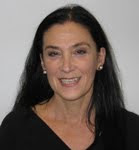
One of the online discussion groups that I participate in is composed of people who make perfume as a small business, as well as those who are starting out pointed in that direction. I would characterize most of these people as independent perfumers. However, it's good to take a look at what's meant by "indie perfumers" and how they are related to other classes such as "niche", "commercial", "mainstream", etc. Of course, I mainly speak for myself when I describe “indie perfumers”, but I think my own approach generalizes to at least some others.
We are not the “noses” who create mass-appeal scents for the large commercial perfume manufacturers, nor are we are the “fragrance duplicators” or the people who buy bulk fragrance oils, repackage them with different names, and sell then on E-bay or other such venues. We fall somewhere outside the mainstream, maybe far on the fringe, creating original scents, often using expensive, high-quality, natural materials, working from an approach that is more artistic than commercial. To compare indie perfumers with visual artists, we are not the commercial artists who create images for advertising or design “art” items for mass production, nor are we the people who sell cheap Van Gogh prints or velvet Elvis portraits by the side of the road. We are the classic “starving artists” who are passionate about our work, willing to take risks, and willing to give up a certain amount of security in exchange for the freedom to create what we feel like creating, in a way that expresses our unique view of the world. Some people will like what we see (or in this case, smell), others will not. That’s OK.
A few indie perfumers will become famous, maybe even within their lifetime, possibly leading to their entry into the world of commercial, mass-appeal perfumery of one kind or another. Mass appeal does not just apply to the drugstore masses or the consumers of products from the huge upscale commercial perfume houses and "designer" brands, but also includes the large community of perfume snobs who are seduced by a name once it has become famous and made the transition from "indie" to "niche". In reality, most of us will probably find some satisfaction in creating perfumes for their own sake, making ourselves and a small number of other people happy, but will never become celebrities or engage in mass production.
It’s unfortunate that in a world of throw-away commercialization, cheap products, and poorly thought out big-brother “regulation” that favors big business, indie perfumers may soon become a threatened species. If this were to happen, the perfume community would lose its most important pool of new talent and original ideas. One member of the perfume-making group has taken a small step toward publicizing the work of the indies, establishing a new blog, ‘Independent Perfume Art” (http://independentperfumeart.blogspot.com/). The purpose is to showcase reviews of indie perfumers’ work, thereby bringing them to the attention of perfume connoisseurs worldwide. Please check out this new blog, on which I will be posting from time to time.




... working from an approach that is more artistic than commercial.
ReplyDeleteI like how you put this.